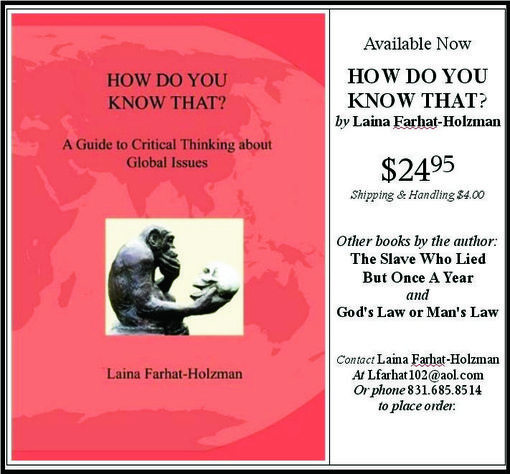 |
How Do You Know That?
A Guide To Critical Thinking About Global Issues |
| More people alive today know more about more things
affecting human experience than ever in history. We overflow with knowledge, have millions of books and
journals and an Internet that updates information daily and spans the world. Despite this, we have a growing
problem with being able to trust in the knowledge of our "experts" and "intellectuals." How can we know that
they are really experts? Evaluating sources and critical thinking are crucial to making sound decisions,
whether in policy making or determining your own future. |
|
| |
|
|
|
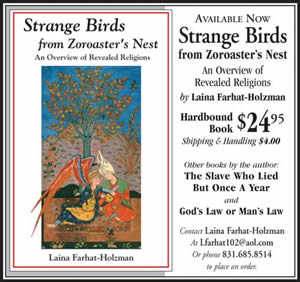 |
Strange Birds from Zoroaster's Nest |
| This is
a book about religion, a human institution that can make us
behave with utmost courage and love or with mindless hatred
and violence. The roots of religion lie deep in the history
of our species and in the unconscious minds of us all. There
is a common core and many branches. A religion can begin in
a burst of joy and enlightenment and then, within a thousand
years, turn to pessimism and persecution. |
| Every
religion has a dark underbelly, and as the educated and economically
thriving sector of the world separates faith from state, the
world's poor and ignorant are embracing the darkest aspects
of traditional religion. The Cold War was nothing compared to
the religious wars that we are facing now and into the future. |
| |
|
|
|
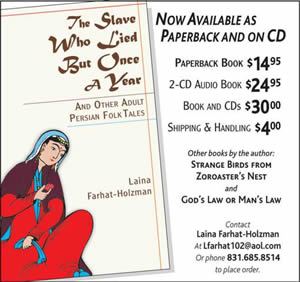 |
The Slave Who Lied But Once a Year--and Other Persian Tales
|
| Laina Farhat-Holzman,
a former professor of World History and Islamic Civlization,
was married for many years to an Iranian whose mother became
very close to her. During a long visit, the two women began
to share fairy tales and folk tales with each other for fun.
Farhat-Holzman translated the Iranian tales and packed them
away until recently. |
| These
stories, told to her aristocaratic mother-in-law by an illiterate
nanny and servants, reveal much about the nature of everyday
Persian life, values, and daydreams. They range from dreamy
to unny and often wicked. They are definitely not for young
children. They reveal the nature of a people who know how to
get around tyranny. |
| |
|
|
|
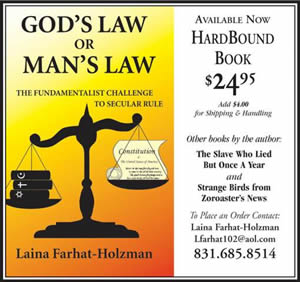
|
God's Law or Man's Law |
God's Law
or Man's Law is an extremely timely warning about the dangers
of radicalized religion on the global scene. This book surveys
countries at risk of religious fascism, countries that have
already lost secular rule, and the problem of cults across the
world.
|
| This survey
of radicalized religion around the world was completed immediately
before the September 11, 2001 attack on New York City and Washington,
D.C., by religious zealots. |
| |
|
|
|
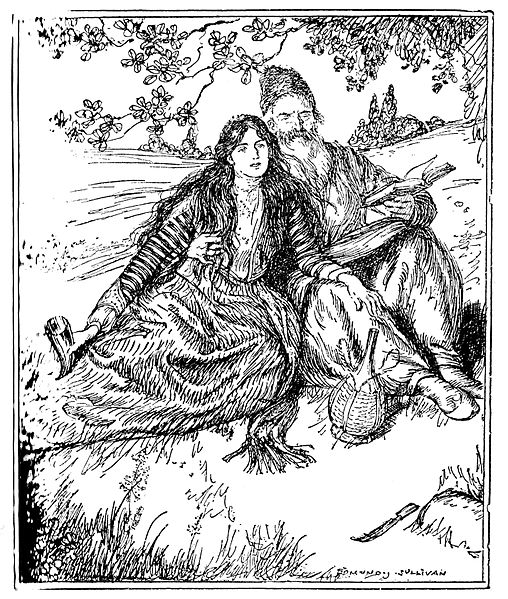
|
On Line Book: An Annotated Rubaiyat of Omar Khayyam |
The Rubaiyat of Omar Khayyam is a collection of a 12th-century Persian astonomer-poet that was translated by a Victorian Englishman, Edward Fitzgerald. It has been a great favorite of the English-speaking world for more than a century, and has been translated from the English into a number of other languages.
This is the first annotated version of this work, with an analysis of how well Fitzgerald did this translation, and how he managed to transfer the puns, irony, Persian mythology, and rhythm of the original into English. Fitzgerald said that he preferred a live Eagle to a stuffed owl (translating word for word would be the stuffed owl).
For those of you who remember this work, do enjoy this edition.
Click Here To Download
|
| |
|
|
|
| |
|